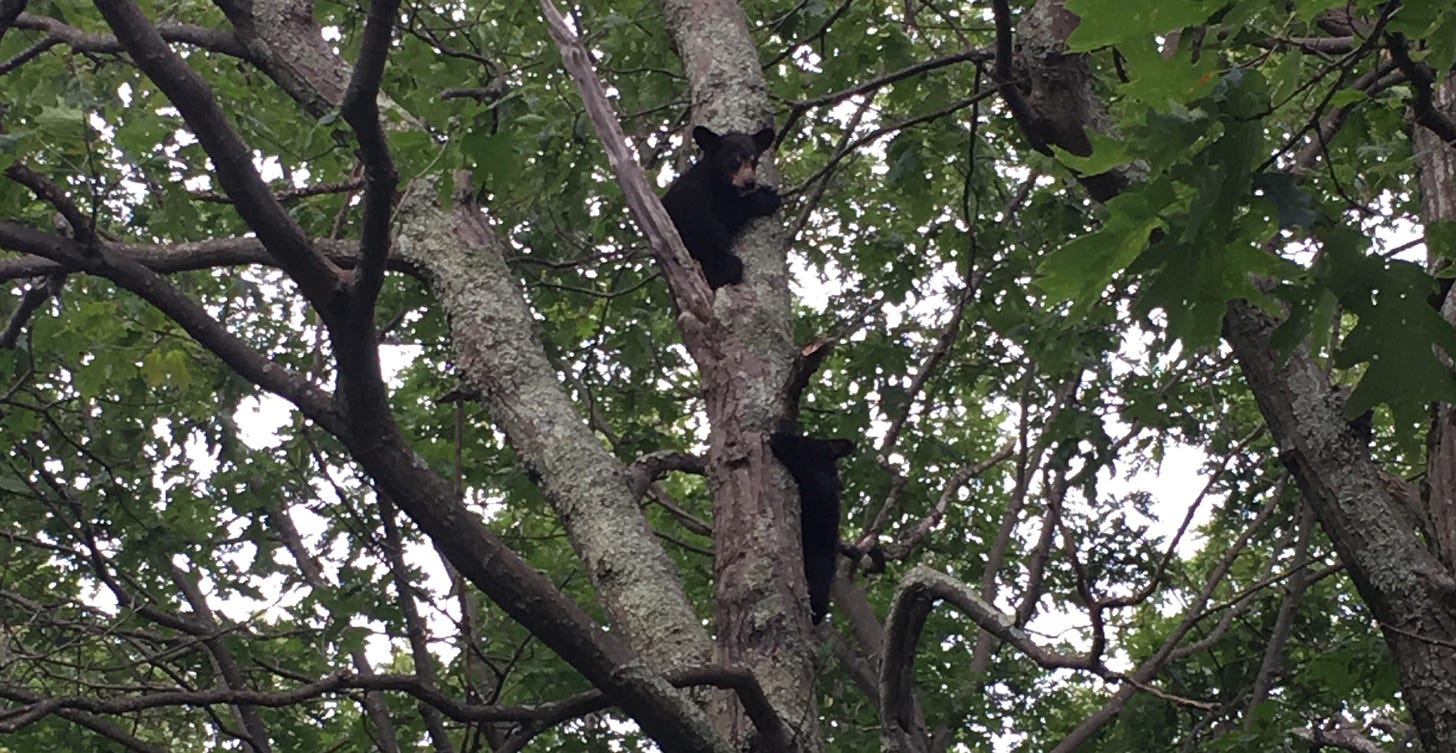constellations #49: hibernation
Hi again.
Lately participating in my life feels like waking from hibernation. For example: This weekend I noticed the numbers for the exits on the highway nearest me — the one I’d been driving on all my life — had changed. When did this happen? While I was asleep? Where’s my exit?
(Of course mammalian hibernation is characterized by deep rest and intense metabolic depression and I would not characterize the past year and a half that way for me — nor, do I think, would most people. Still, the metaphor of emerging from elsewhere feels resonant.)
Different mammals hibernate differently. Some are faculative hibernators, who only hibernate when cold-stressed or deprived of food. Others are obligate hibernators, who hibernate every winter no matter what.
Another example: Last week I smelled the inside of a coffee shop I’ve visited a dozen or more times over the past year. It delighted me. It hadn’t occurred to me that the store had a smell — of course it does, all stores have smells, particularly coffee shops — that my mask had been, you know, masking.
Scientists used to think that it was just a few mammals and birds in very cold places who hibernated, and that they’d do so all winter long. Not so. Many species hibernate, and they don't stay in their dormant state throughout their whole hibernation period. Some wake up to forage before returning to their state of torpor; others wake up to mate. Groundhogs, in fact, wake up 12-20 times during a hibernation cycle. But why, exactly, animals wake up during hibernation is a big question in the hibernation research field.
The place where an animal hibernates is called its hibernaculum.
Could humans hibernate? Researchers are curious. “Aside from providing a convenient way to avoid winter, one reason to find out might be the advent of long-distance space travel,” writes an Oxford professor in a just-asking-questions tone that I find, frankly, a little creepy given the context. “A journey to our nearest planet Mars would take around eight months using current technology. If we one day hope to visit another star system, even if we could travel at the speed of light, the journey would take years. Being able to go into a state of long-term torpor would make such distances considerably less tedious for the astronauts and conserve vital resources.”
Hibernation that happens in the summer is called aestivation. Some kinds of snails, crocodiles and salamanders do this. Not as many mammals do.
Twice lately I have left social situations feeling invigorated. This is new to me. In the past, spending time with even a group of truly beloved pals left me needing a nap; now, Matt and I keep turning to each other while we’re out with glints of “I hope this party never ends” in our eyes. (The “party” in question has usually involved drinking one [1] beer in someone’s backyard and leaving just after sunset, but still.) I imagine we are not alone in this newfound increased capacity for extroversion. It feels great. I hope it stays.
I wonder what else we might come to find, over this summer, that we have left behind in our hibernacula. I wonder what we might discover outside them that we didn’t anticipate. All good things, I hope.
There’s only one bird that’s known to hibernate: North America’s common poorwill. Rooting for you, little guy.

Thanks for reading. I hope you wake up feeling well-rested this week.
xo,
M



